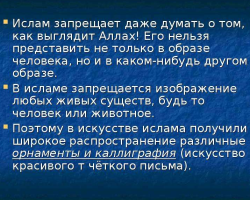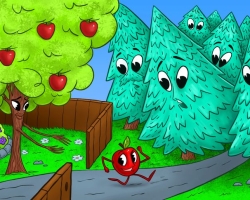The rules for writing "-N-" and "-NN-" in different parts of speech and exceptions from them.
Content
- When is it written “-n-”, and when “-nn-” in adjectives?
- When is it written “-N-”, and when “-NN-” in nouns?
- When is it written “-n-”, and when “-nn-” in the verbal adjectives and participles?
- A list of words that are always written with two "-nn-"
- Video: Spelling "-N-" and "-NN-" in different parts of speech
The Russian language is considered one of the most complex languages \u200b\u200bof the world in terms of difficulty in learning. In the process of teaching Russian grammar from the student, it is necessary to remember a huge amount of material and assimilate not only numerous rules, but also exceptions to them. One of the difficulties of Russian grammar, which is faced not only by foreigners, but also native speakers, is the spelling of the suffixes " -N-" and " -nn-»In various parts of speech.
Basically, these rules apply to adjectives, as well as adverbs and participles. However, writing these suffixes in nouns also has its own specifics.

When is it written “-n-”, and when “-nn-” in adjectives?
In the names of adjectives, “-N-” should be written in the following circumstances:
- If there is no suffix in the adjective.
For example:oatmeal, drunk, zealous, woven, ruddy; - If the adjective name is attractive (answers the question " whose?», « whose?") And formed using the suffix" -in-».
For example: babushkin, Dedushkin, Vasin, cars, Sashin, pigeon, donkey, snake, tiger, lion, animal, mosquito; - If the adjective name is relative (answers the question " which?") And formed with the help of suffixes" -an-" or " -an-».
For example: sandy, clay, silver, herbal, oil, earthen, bone;
Exceptions: tin, wooden, glass.
- Also " -N-»Is written in the words" oil" and " windy". BUT! " windless».
In the names of adjectives, “-NN-” should be written in the following circumstances:
- If adjectives are formed from nouns, the basis of which ends on " -n". In this case, in the adjectives the second " -N-»Will be their suffix.
For example: true (truth), picture (picture), wine (wine), store (store), long (length), pocket (pocket), sofa (sofa), sundress (sundress), cardboard (cardboard), concrete (concrete), concrete (concrete) legal (law); - If adjectives are formed with the help of suffixes " -he N-" or " -enn-».
For example: inversion, material, dining, punctuation, demonstration, registration, registered, fiery, temporary;
Exceptions: tin, wooden, glass, calm.

When is it written “-N-”, and when “-NN-” in nouns?
Writing " -N-" or " -nn-»In a derivative noun depends on the morpheme by which this noun was formed, or on its derivative basis.
In nouns, “-nn-” should be written in the following circumstances:
- If the basis of the word (root) ends with the letter " -n", And his suffix begins on" n».
For example: guard (guard), pickpocket (pocket), wanderer (wandering), chosen one (election), exile (exile), pre -Bannik (bath), cup holder (glass), Tankeeper (tribute), Mannik (semolina); - If the noun is formed from the adjective, which has " -nn-", Or from the participle.
For example: verification (verified), torture (tortured), task (specified), contemporary (modern), relative (related), chosen one (chosen), captive (prisoner), social activist (public), messenger (sent), craftswoman (craft), Owner (own), exile (expelled);
Write "-N-" should be in such nouns of nouns as:
- Sandstone (sandy), spice (spicy), hotel (Gostiny), peat (peat), dumplings (boiled), Shrovetide (oil), windbreaker (windy), din (bone), woodwood (wood), smoked (smoked), Mudness (sophisticated), smartness (smart), oatmeal (oatmeal), hemp (hemp), crimson (crimson), as well as in words Omshanik and Olshanik.
Important: when the derivative of a noun suffixes " -Nick-" or " -nin-"Join the base ( squad - combatant, captive - prisoner), and the suffixes " -Ik-" or " -IC-»To the basis of the adjective or participle ( wood - woodwood, exiled - exile).

When is it written “-n-”, and when “-nn-” in the verbal adjectives and participles?
FROM " -nn-»Suffixes are written in the part -time participles of the past tense in full forms (" -nn-" and " -enn-"). Also with " -nn-", In some cases, adjectives are written similar in form with participles.
- Adjectives and participles that end in " -In», « -In" and " -Inno"(Formed from verbs with the end" -Bet», « -The") Are written with" -nn-»In the suffixes.
For example: implemented (implement), granted (to grant), organized (organize), risky (risk), stolen (wrinkled), small (small); - Adjectives and participles that are formed from perfect -species verbs are also written with " -nn-". Most of these verbs have a prefix.
An example of adjectives and participles that are formed from verbs with prefixes: painted, exhausted, washed, fired, signed, tinted, cleaned, confused, cleaned, tied.
An example of adjectives and participles that are formed from verbs that do not have a prefix: abandoned, finished, devoid, captive, offended, equipped, purchased, forgiven, solved. - The same rule applies to participles and adjectives that are formed from the two -witted verbs (at the same time perfect and imperfect).
For example: miliated (sweet), promised (promise), lazy (say), born (give birth), executed (execute), attacked (attack), confiscated (confiscated), crystallized (crystallized), examined (examine);
Important: adjectives include exceptions that correlate in the form with the participles: planted mother (BUT! planted tree), a finished person (BUT! I ended with a project), a sister called (BUT! named after the mother).
- Also with " -nn-»Participations formed from verbs of an imperfect type are written and not ending on" -In" and " -In».
For example: sledges loaded with brushwood, fried on open fire, a landscape painted with a brush, painted with multi -colored paints fence. - The participles corresponding to this rule are written with " -N-».
For example: loaded wagon, fried vegetables, written handsome, painted door;

A list of words that are always written with two "-nn-"
There are words-exclusion, in the suffixes of which there are always two " -nn-". These words do not apply to these words described above and it is in them that people most often make mistakes. Therefore, these words need to be simply remembered once and for all.
- Unprecedented;
- Non -navigable;
- Unheard of;
- Unexpected;
- Desired;
- Heard;
- Crowned;
- Promised:
- Slow;
- Cherished;
- Imperishable;
- Mental;
- Plastered;
- Unexpected;
- Inadvertent;
- Sacred;
- Readable;
- Scemory;
- Set;
- Boronno;
- Counted;
- Drawn;
- Bang;
- Done;
- Chased;







